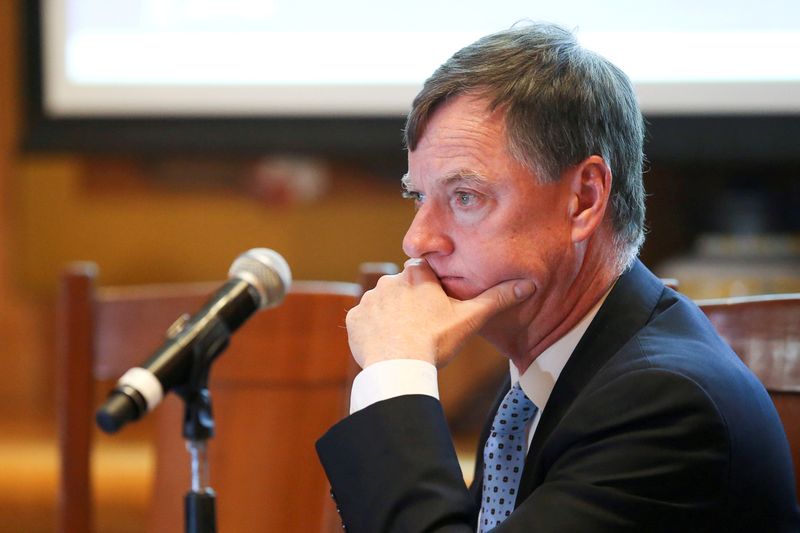(Reuters) - Chicago Federal Reserve President Charles Evans on Wednesday reiterated that it will take until the middle of next year to complete the Fed's wind-down of its bond-buying program even as the central bank checks to see if high inflation recedes as he expects.
"We learned back in 2013 that tapering these asset purchases was preferable for financial market functioning; that if we did a sudden stop on our purchases that wasn't well received," Evans said at a virtual conference by the Mid-Size Bank Coalition of America. "It's going to take us until the middle of next year to complete that; we are going to be mindful of inflation; we're going to be looking to see how much additional accommodation is boosting inflation; if indeed that is the case, we'll be thinking about when the right time to start raising rates will be."
Evans' timeline reflects the central bank's guidance last month when it announced the beginning of the end of its asset purchasing program, put in place as the pandemic bore down on the U.S. economy in March 2020 but now seen as overly stimulative. Starting this month the Fed began trimming what had been $120 billion in bond purchases at a monthly pace that puts it phasing out all purchases by June.
Evans said he is less confident than a few months ago about his baseline view that inflation will recede next year, given how long price pressures have been building already.
His view of a measured reduction in bond buys contrasts with that of other Fed policymakers, including St. Louis Fed President James Bullard, who say that with a falling unemployment rate, strong consumer demand and high and rising inflation, the Fed ought to speed up the taper to be ready in case it needs to raise rates earlier.

It's unclear which faction within the Fed will prevail, particularly as U.S President Joe Biden nears a decision on who will lead the central bank for the next four years.
Policymakers next meet in mid-December, where they will also submit fresh forecasts for the economy and their expected path of policy. In September, about half of policymakers thought a rate hike would not be needed until 2023.